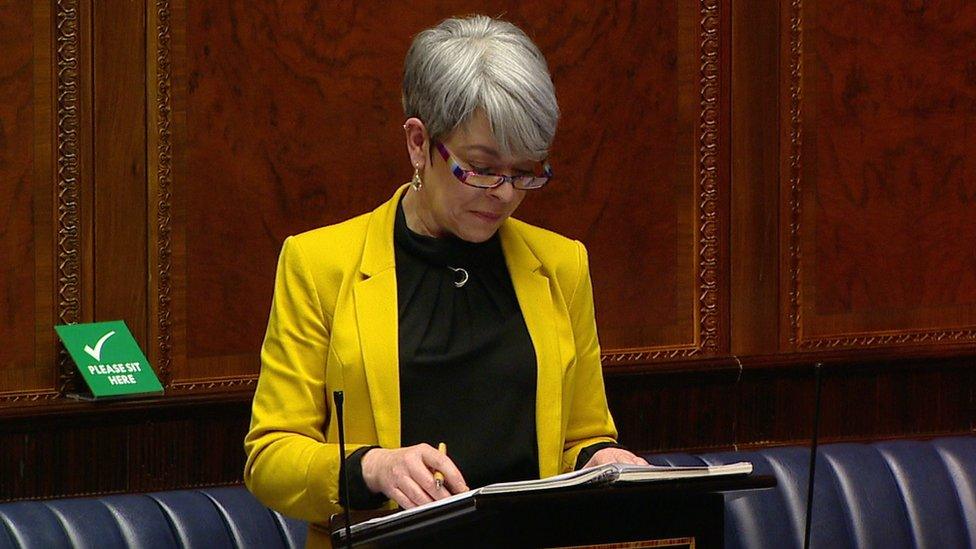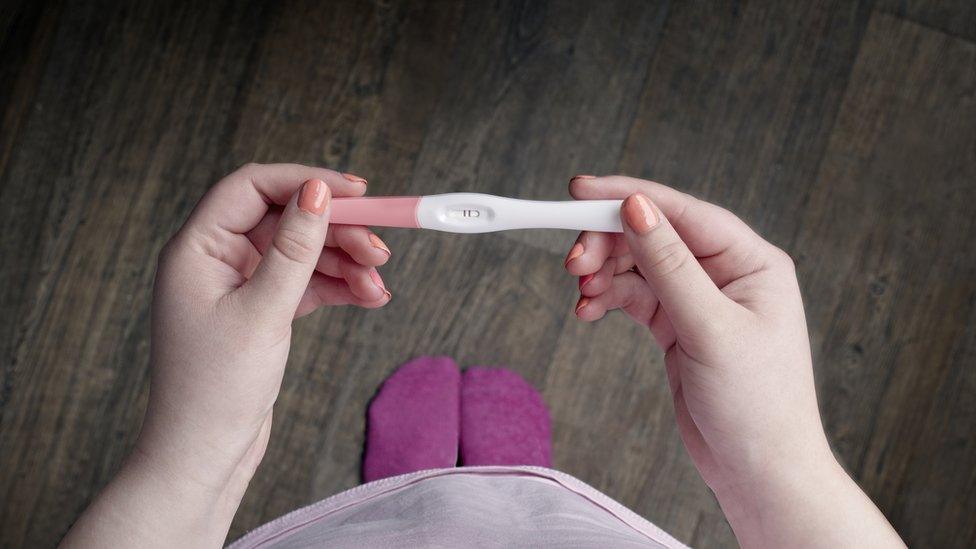Abortion: Bill banning anti-abortion protests delayed
- Published

A bill to ban anti-abortion protests outside health settings in Northern Ireland has been delayed from becoming law, BBC News NI has learned.
Former Green Party MLA Clare Bailey developed the bill which would set up "safe access" zones at clinics where abortions are carried out.
It was voted through the assembly in March by a majority of parties.
However, NI's Attorney General has intervened and the UK Supreme Court is now involved.
Dame Brenda King has asked the court to determine whether part of the bill is within the "legislative competence" of the Stormont assembly.
The bill would make it an offence to protest against abortion within the zones, directly argue or harass people who may be attending the clinics or to obstruct access to the premises in question.
The attorney general's concerns relate to the omission of what is known as the "reasonable excuse" defence from the legislation.
In a statement, the attorney general's office said it had to be determined whether offences created by the bill were a "proportionate interference with the rights of those who wish to express opposition to abortion services in Northern Ireland"., external
Only if the Supreme Court determines the part of the bill in question to be within the assembly's legislative competence, will it proceed to become law.
'Reasonable excuse'
In March, Traditional Unionist Voice (TUV) leader Jim Allister proposed amending the bill to allow for a "reasonable excuse" within the legislation.
At the time he told the assembly: "It is overwhelmingly the case that our law provides reasonable excuse for someone accused.
"It is not about asking the assembly to define what a "reasonable excuse" is, because every case is different. It is about saying to the court, "If the defence is raised by the accused, you decide whether what they did or said was reasonable."

Former MLA Clare Bailey developed the bill, which would set up "safe access" zones at clinics where abortions are carried out
Ms Bailey had supported it, saying she saw "no issue" with including it to give additional assurance to the operation of the legislation.
However, it did not pass as Sinn Féin, Alliance and the SDLP voted against it.
Under the Northern Ireland Act 1998, which established the current Stormont institutions, there is a process that allows the attorney general to ask the UK Supreme Court to determine whether a provision of a bill is within the legislative competence of the assembly.
The Department of Health said it would await the outcome of the judgement.
A date for hearing has not been announced yet.
Ms Bailey said that "whatever the outcome of the Supreme Court process", she was hopeful that the laws would soon be in place.
"The Safe Access Zones Bill is a ground-breaking piece of legislation, the first of its kind anywhere in the UK and Ireland. The bill is needed to end the deliberate campaign of harassment and intimidation facing women trying to access healthcare across Northern Ireland."
Outgoing assembly Speaker Alex Maskey wrote to all MLAs on Thursday to notify them of the situation with the bill.
He said the process was at an "early stage" and that the Speaker in office at the time "will consider the handling of this matter from an Assembly perspective as it develops".
Related topics
- Published8 June 2022

- Published2 March 2022

- Published12 October 2021
